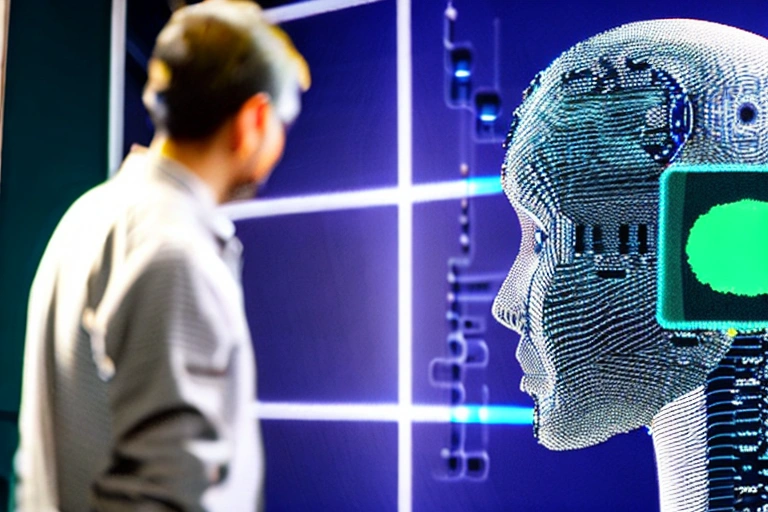Artificial Intelligence (AI) has been gaining more and more attention in recent years, and for good reason. AI has the potential to revolutionize the way we live our lives, from how we interact with technology to how we work and play. But what does AI actually mean for us? In this blog post, we’ll explore the potential benefits of AI and how it could impact our lives. So if you’re curious about what the future holds for us with AI, read on!
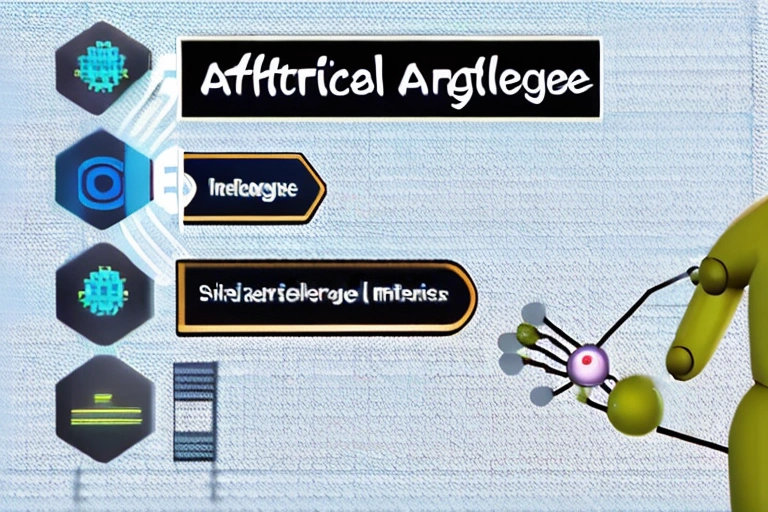
Introduction to Artificial Intelligence
Artificial intelligence (AI) research is constantly evolving and expanding, with new possibilities and potential benefits being explored on a daily basis. While there are many different applications for AI, some of the most commonly cited benefits include:
- Increased Efficiency: AI can help automate processes and tasks, freeing up time and resources for other tasks.
- Improved Accuracy: AI can help make decisions more accurately and quickly, leading to improved outcomes.
- Reduced Costs: AI can help reduce costs associated with various tasks and operations.
- Enhanced Security: AI can help protect data and systems from unauthorized access or destruction.
History of AI Research and Development
Artificial intelligence research and development has been ongoing for over a century, with many different approaches and implementations. The first AI research took place in the early 1900s, with early pioneers such as Alan Turing and John McCarthy working on theoretical models of machine intelligence. However, it wasn’t until the 1950s that AI began to be used in practical applications, with early pioneers such as Marvin Minsky and Seymour Papert working on early AI systems.
Since then, AI research has continued to evolve at a rapid pace, with many new developments being made every year. Today, artificial intelligence is widely considered to be one of the most important fields of research in the world, with many potential benefits for society. These benefits include improved efficiency and productivity in various industries, increased safety and security in both personal and public domains, and increased understanding and knowledge of complex systems.
Overall, artificial intelligence research is continuing to make significant progress towards its many potential benefits for society.
AI Technologies and Their Applications
AI has been a source of fascination for many years and there are numerous applications for its use. Currently, AI is being used in a number of industries to improve efficiency and accuracy. Here are three examples:
- Healthcare: AI technology can help doctors diagnose diseases more quickly and efficiently. The software can also help identify potential risks before they turn into full-blown illnesses. Doctors may even be able to generate new treatments based on this data.
- Transportation: Self-driving cars rely on AIgorithms that make decisions about when to brake or change lanes. These systems not only save drivers time, but they reduce the risk of accidents as well.
- Retail: By using computer vision algorithms, retailers can scan products and automatically calculate shipping costs and taxes based on weight and size information. This saves customers time and money while ensuring accurate product descriptions stay up-to-date
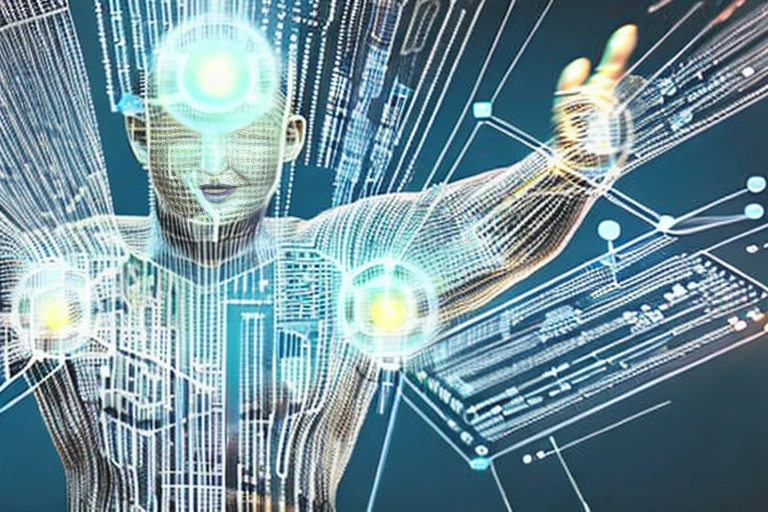
Benefits of AI for Businesses
Artificial intelligence (AI) research and development is still in its early stages, but there are already a number of potential benefits for businesses that invest in the technology. AI can help businesses automate tasks and processes, improve customer service, and make more informed decisions.
One of the most obvious benefits of AI is that it can automate tasks and processes. For example, a business could use AI to automatically fill out customer forms or process orders. This would save time and resources for the business, and could improve customer service by reducing the amount of human interaction required.
AI can also help businesses make more informed decisions. For example, a business could use AI to analyse large data sets in order to make better decisions about investments or marketing campaigns. This would allow the business to take action quickly and make informed decisions about future actions.
There are a number of other potential benefits of AI for businesses. For example, AI can help businesses reduce costs by automating tasks or processes. AI can also help businesses improve customer service by automating customer interactions. AI can also help businesses make better decisions about their operations by analysing large data sets.

Benefits of AI for Society
Artificial intelligence holds the potential to improve our lives in many ways. It can help us navigate around city streets safely, recommend delicious recipes, and even diagnose diseases. But there are also a number of potential benefits for society as a whole. For example, AI could help to reduce unemployment and crime rates. Additionally, it could enable us toperforming complex tasks that would otherwise be too difficult or time-consuming for humans to do. As artificial intelligence continues to evolve, the myriad benefits it can provide will become clearer.
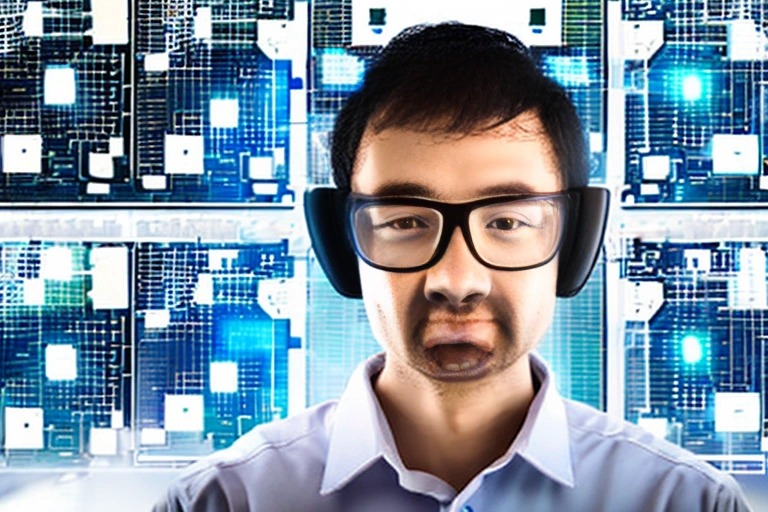
Challenges of Implementing AI
Understanding the Impact of AI
Artificial intelligence (AI) research is ever-growing, with many benefits for society. However, there are also challenges involved in implementing AI into businesses and communities. One important question to ask is how much impact AI will have on the workforce and economy over time. Understanding the impact of AI is essential for policymakers and business leaders alike.
Enhancing Human Decision-Making
When it comes to artificial intelligence, there are many potential benefits that could be enjoyed by society as a whole. However, there are also several challenges that need to be addressed in order to make sure that these benefits actually materialize. For example, one of the main challenges is that AI systems are still largely dependent on human input. This means that they are susceptible to human biases and can’t always make informed decisions on their own. Another challenge is that AI systems require large amounts of data in order to learn effectively. If this data is not properly secured, then malicious actors could gain access to it and use it for their own purposes. Lastly, the question of who will be responsible for implementing and governing AI remains open-ended and controversial. There is a lot of work that needs to be done in order to ensure that AI benefits society as a whole.
Automating Repetitive Tasks
There are many potential benefits of artificial intelligence (AI), but there are also many challenges to implementing it. One of the most significant challenges is automating repetitive tasks. For example, a bank may use AI to automate the process of approving loans. However, this would require the AI to be able to understand the complex financial terminology and regulations involved in approving a loan.
Introducing New Job Opportunities
Artificial intelligence (AI) research is progressing rapidly and promises great benefits for society, including improving economic efficiency and increasing productivity. However, there are also some challenges that need to be addresses before AI can achieve these goals. First and foremost is the question of how best to implement AI into our lives without compromising privacy or liberty. Second, we need to devise ways of guaranteeing that AI remains equitable in its impact across various groups of people. Finally, new job opportunities will be created as AI systems are implemented into businesses and governments.
Ethical Considerations of AI
Apart from the inherent ethical considerations of AI (artificial intelligence), there are also broader implications concerning what it means for our economy, society and future generations. It is important to keep in mind that we need to better understand how AI will work both intentionally and unintentionally before making irreversible decisions about its development.
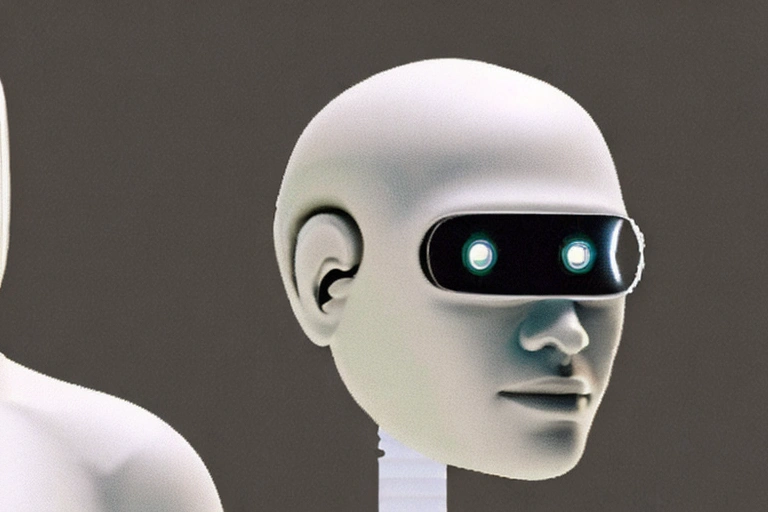
The Future of Artificial Intelligence
Artificial intelligence (AI) research is rapidly evolving and there are many potential benefits to be realized. One of the most promising areas of AI research is in the field of machine learning, which allows computers to learn from data without being explicitly programmed. This could have a number of benefits, including speeding up the process of discovering new knowledge and improving the accuracy of predictions.
There are also ethical considerations to be taken into account when developing AI. For example, if AI is developed to carry out tasks that would traditionally be carried out by humans, such as driving cars or making financial decisions, it could potentially put people at risk. It is important to ensure that any AI is developed responsibly and with consideration for the safety of both humans and the machines themselves.
Impact of AI on Employment
Benefits of AI in Business
Artificial intelligence (AI) is a subset of technologies that are used to enable computers to act like humans. AI can be used for tasks such as understanding natural language, identifying objects and faces, and calculating mathematical solutions. Some businesses believe that AI has the potential to automate many jobs and eliminate the need for human workers. The benefits of AI in business include:
- Reduced costs: AI can help businesses reduce costs by automating tasks or providing insights that would otherwise require human input. For example, a company could use an AI-based analytics platform to identify trends in customer data or track manufacturing processes more accurately than a human could.
- Improved efficiency: With less work required from employees, businesses can focus on higher value activities. This increased efficiency can lead to increased profits and growth.
- Increased customer engagement: AI can help businesses improve customer engagement by automating customer service processes or providing recommendations based on past interactions. For example, a company could use an AI-based chatbot to provide support for customers during busy times or when the customer is unavailable.
- Enhanced customer experience: By providing a more personalized experience, AI can help businesses increase loyalty and customer retention. For example, a company could use an AI-based chatbot to respond to customer questions in a more timely manner or recommend products based on the customer’s interests.
While the benefits of AI in business are significant, there are also some potential risks associated with its implementation. For example, if businesses rely too heavily on AI to automate tasks, they could experience a loss of jobs and decreased wages. Additionally, if AI is used to make decisions that affect people’s lives (such as recommending medical treatments or determining hiring decisions), there is risk that these technologies could be inaccurate or harmful. As with any new technology, it will take time for businesses to understand the full benefits and risks of using AI and adjust their strategies accordingly.
AI and Automation
Artificial intelligence (AI) is already having a significant impact on employment, with the possibility of even more widespread automation in the future. Some experts predict that almost half of all jobs could be replaced by robots or artificial intelligence within the next 10 to 20 years.
The potential benefits of AI include increased efficiency and innovation, as well as reduced costs and increased production. However, there are also concerns about how AI will affect the workforce and what challenges need to be addressed in order to ensure that workers are able to keep up with the changes. There are also questions about who will actually benefit from AI implementations, since not everyone has access to high-level intellectual skills.
AI and Human Interaction
Artificial intelligence (AI) is a field of computer science and engineering that deals with the creation of intelligent agents, which are systems that can reason, learn, and act autonomously. AI has the potential to improve many aspects of human life, including employment.
AI has the potential to automate many tasks currently performed by humans. For example, a human driver could be replaced by an AI system that can navigate a route without making mistakes. This would free up human drivers to do other tasks, such as passenger safety or providing customer service.
In addition, AI has the potential to improve the quality of human work. For example, a machine learning algorithm could be used to identify and correct errors in a document written by a human.
However, AI has the potential to reduce the number of jobs in the future. For example, a machine could be trained to perform tasks better than a human worker. If this machine is adopted by businesses, it would mean that humans no longer need to do these tasks.
Fortunately, there are ways that AI can improve the quality of jobs currently held by humans. For example, AI systems could be used to assist employees with complex tasks or large amounts of data. This would allow these employees to focus on more important responsibilities rather than performing repetitive tasks.
The Future of AI
AI development is continuing at an unprecedented rate, with many foreseeing tremendous benefits for humanity. Yet some fear that AI could lead to mass unemployment and a loss of jobs in the future. So far, there have been few concrete examples of this happening, but it’s something that concerns many people.
One argument in favor of artificial intelligence is that it can provide greater efficiency in workplaces. For instance, one study found that robots were able to process data 20% faster than humans; as a result, companies can save money by using them rather than hiring more human employees. In addition, AI-powered robots are becoming increasingly accurate and coordinated, which means they’re able to perform complex tasks better and faster than ever before. This could lead to a significant increase in jobs in fields like logistics and manufacturing.
On the other hand, some worry that AI could lead to mass unemployment because it could automate many jobs. For example, self-driving cars are projected to eliminate millions of driver positions over the next few decades. As this happens, people who lost their jobs will likely be unable to find new ones in similar fields. Furthermore, computers can now perform tasks that were once thought impossible for them, like reading and understanding human sentiment or reacting emotionally to social media posts. If these capabilities continue to develop at their current pace, humans may not have a lot of opportunities left in 2030 or 2050.
So far there has been little evidence that AI is leading to mass unemployment, but it’s something that people are concerned about. The future of AI is still largely unknown, but it’s likely to have a significant impact on employment in the years to come.
Understanding the Risks of AI
Artificial intelligence (AI) has the potential to revolutionize many industries, including healthcare. However, there are also risks associated with AI that should be taken into consideration before implementing it. For example, AI may become uncontrollable and destroy society as we know it. As such, it is important to understand the risks so that they can be weighed against the potential benefits.

Best Practices for Using AI
Automation: Reducing Labor Costs
Artificial intelligence (AI) has the potential to make our lives easier by automating tasks and processes. However, there are also risks associated with its implementation. Best practices for using AI should account for these risks and maximize benefits while minimizing negative impacts.
One of the key risks of AI is that it could be used to replace human workers. If done incorrectly, this could lead to increased unemployment or decreased wages. To avoid this situation, developers should ensure that AI is implemented in a way that does not eliminate jobs or cause significant labor cost reductions. Additionally, they should take measures to protect data privacy and prevent abuse of the systems under automation.
Other potential risks associated with AI include cyberattacks and misuse of personal data. Developers should take measures to protect data and ensure that it is not inappropriately accessed or used. They should also be aware of potential cyberattacks and take steps to protect themselves and their systems.
AI has the potential to improve our lives in many ways. However, it is important to be aware of the risks and take precautions to ensure that they are minimized. By following best practices, developers can ensure that AI is used safely and effectively, with the benefits outweighing the risks.
Increased Efficiency and Accuracy in Data Analysis
Organizations can reap huge benefits from the increased efficiency and accuracy in data analysis afforded by artificial intelligence. Consider, for example, a company that keeps track of inventory levels and sales transactions. With AI-assisted data analysis, the company could identify trends in its data – something that would be difficult or even impossible to do manually. This could lead to more effective asset management as well as improved customer service. In fact, AI has the potential to play such an important role in business operations that some experts are beginning to refer to it as “the fourth industrial revolution” (Wen et al., 2018).
Predictive Analytics for Improved Decision-Making
There are a number of potential benefits to using AI, including improved decision-making and predictive analytics. Predictive analytics uses artificial intelligence algorithms to predict future events, outcomes or trends. This can be used in business to help make better decisions and optimize operations.
Some best practices for using AI include defining the goals of the AI project, ensuring data is quality controlled, and training the AI model appropriately.
Enhancing Human Abilities with Augmented Intelligence
While artificial intelligence (AI) has the potential to enhance human abilities in a number of ways, it is important to understand the risks associated with its use before making any decisions. Some experts worry that AI could lead to widespread automation, unemployment and even cyber-terrorism, while others see great potential for devices such as personal assistants and digital assistants that can help people with day-to-day tasks.
There is still much we don’t know about how AI will impact our world, so it is important to take a cautious approach when deploying the technology. It’s also important to remember that not all AI projects are created equal – some may be more effective than others. As with any new technology, it’s best to consult with an expert before making any decisions.

Conclusion
The potential benefits of artificial intelligence are vast and have the potential to improve many aspects of human life. With the technology becoming more advanced and widespread, there is a real opportunity to enhance human abilities in ways that were never before possible. However, it is important to think about the consequences of this technology before rushing into anything. It is essential that we learn as much as we can about artificial intelligence so that we can make informed decisions about its future.
In conclusion, artificial intelligence has the potential to revolutionize the way we live and work. AI technologies can provide businesses with greater efficiency and accuracy, while also helping to improve the quality of life for society as a whole. However, it is important to consider the ethical implications of using AI and understand the risks associated with its implementation. By taking the time to learn about AI, businesses can make sure they are using it responsibly and effectively. To learn more about artificial intelligence, be sure to check out our other content!
